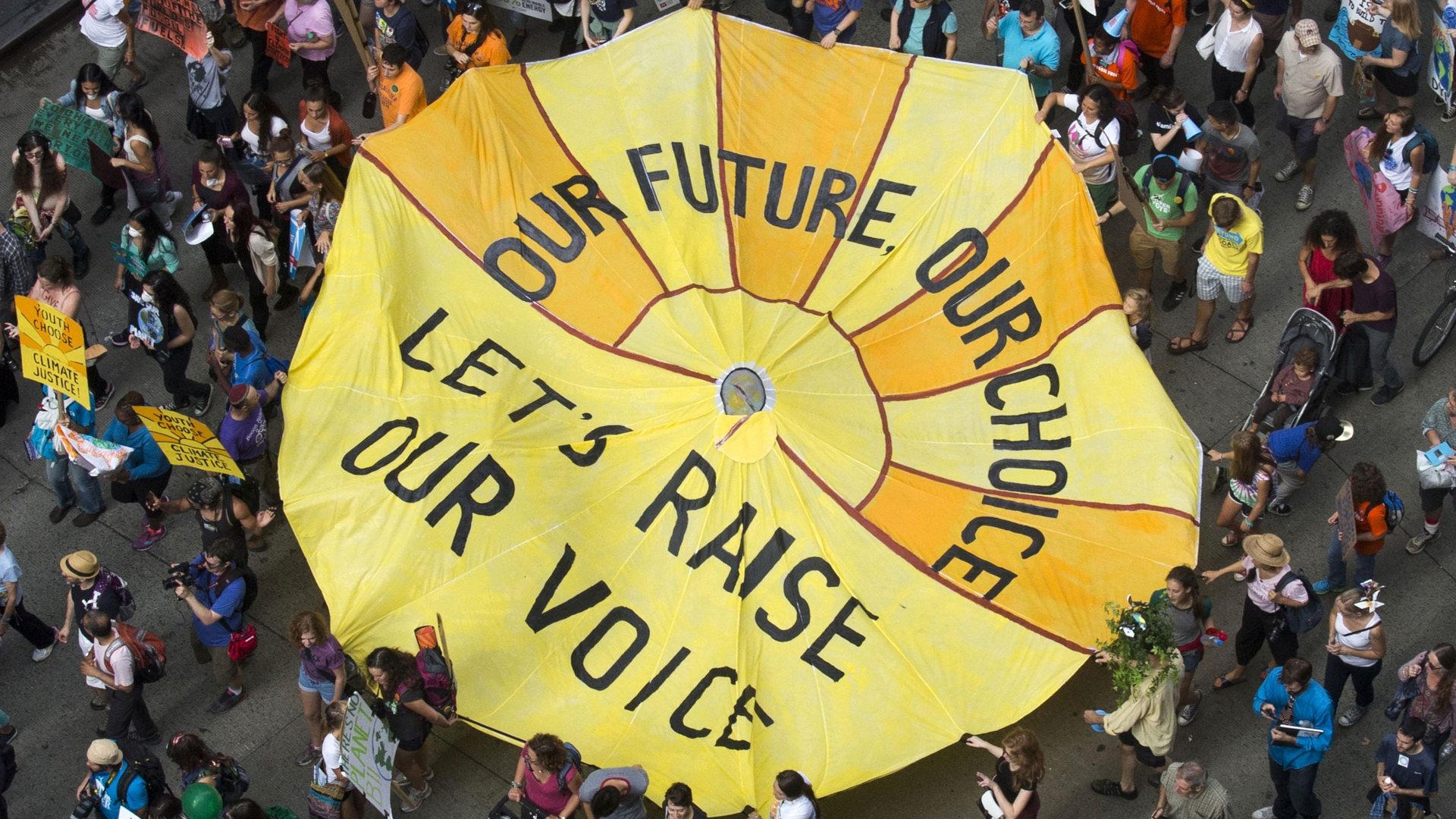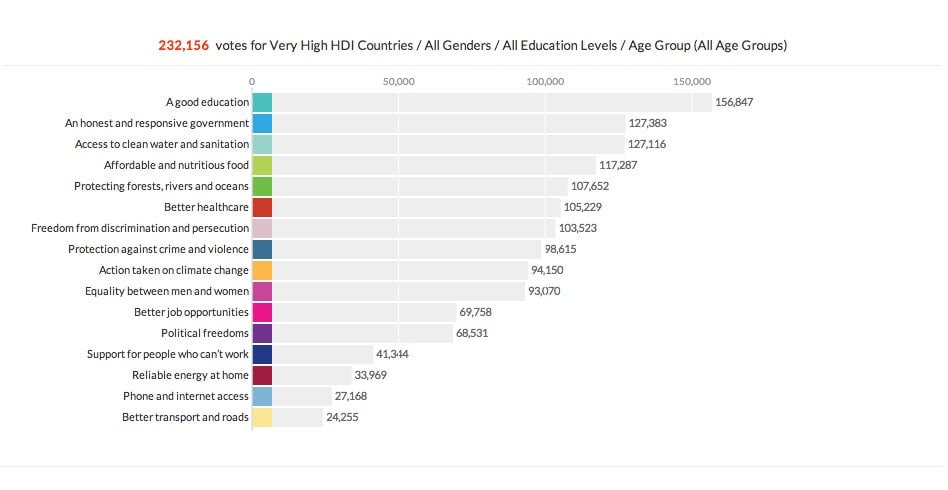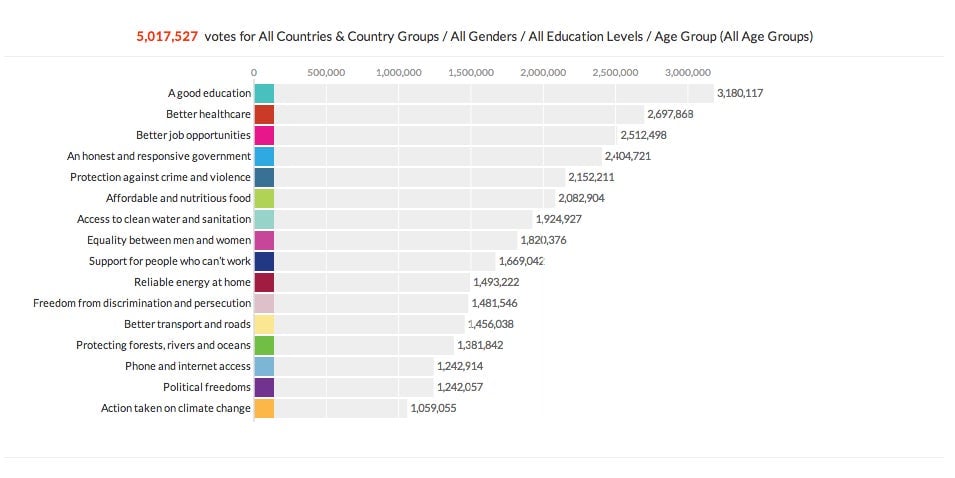Climate change is still a first world problem
On Sunday, Sept. 21, a reported 310,000 people marched in New York City ahead of the United Nations Climate Summit. It was the biggest climate change event ever organized and certainly helped to dispel the myth that “no one cares about climate change.”


On Sunday, Sept. 21, a reported 310,000 people marched in New York City ahead of the United Nations Climate Summit. It was the biggest climate change event ever organized and certainly helped to dispel the myth that “no one cares about climate change.”
People care about the environment, when they can afford to.
A UN survey, based on 5 million global respondents so far, reveals that people who live in highly developed countries consider taking action against climate change as their ninth of sixteen priority, right below protection against crime and above equality between men and women.

As the countries’ development lowers, so does the place climate change occupies in their priorities. Amongst people living in countries with the lowest development parameters, climate change is at the bottom of the list.

Even when looking at the overall survey results, climate change is literally people’s last concern.

It’s worth nothing that the single group who appears to be most concerned about climate change are women 61 years of age or older with an education level beyond secondary who live in highly developed countries. Even in the same group of countries, people with some primary education level value climate change as their 11th highest priority (out of 16), giving better education a solid first place.
Clearly, this does not mean that climate change does not affect developing nations, nor that it’s not a huge issue as Leonardo Di Caprio pointed out in his powerful speech today at the UN:
https://www.youtube.com/watch?v=ka6_3TJcCkA
But a look at people’s priorities serves as a good reminder that health and education are basic daily needs for much of the world while worrying about the future of the planet is a luxury.